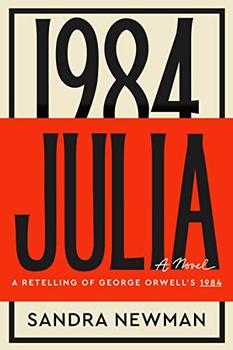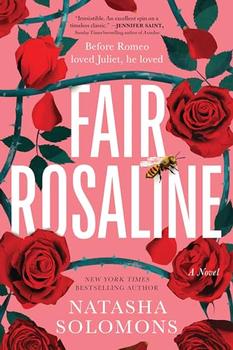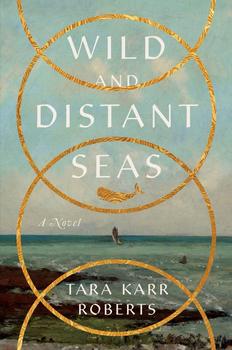Summary | Excerpt | Reading Guide | Discuss | Reviews | Beyond the book | Read-Alikes | Genres & Themes | Author Bio

Critics' Opinion:
Readers' Opinion:
First Published:
Oct 2023, 400 pages
Paperback:
Sep 24, 2024, 400 pages
 Book Reviewed by:
Book Reviewed by:
Kim Kovacs
Buy This Book
Upon its publication in 1949, George Orwell's 1984 became an instant classic. The terms he coined—Big Brother, thought police and newspeak, to name a few—are still in use today. Even the author's name has become an adjective; most equate the word "Orwellian" with constant surveillance under an autocratic system of government. So it was with a bit of skepticism that I approached Sandra Newman's novel Julia, a retelling of 1984 from the viewpoint of the protagonist's lover and partner in thoughtcrime. I doubted the author could bring anything new to such a literary masterpiece. I am pleased to report, however, that she succeeds completely in reimagining this well-known novel, bringing new depth to the world Orwell created.
In Newman's retelling, Julia is a mechanic responsible for keeping the equipment running at the Records Department of the ...

BookBrowse's reviews and "beyond the book" articles are part of the many benefits of membership and, thus, are generally only available to subscribers, including individual members and patrons of libraries that subscribe.
Join Today
If you liked Julia, try these:

by Natasha Solomons
Published 2024
The most exciting historical retelling of 2023: a subversive, powerful untelling of Romeo and Juliet by New York Times bestselling author Natasha Solomons.
Was the greatest ever love story a lie?

by Tara Karr Roberts
Published 2024
A gorgeous debut, laced through with magic, following four generations of women as they seek to chart their own futures.




If there is anything more dangerous to the life of the mind than having no independent commitment to ideas...
Click Here to find out who said this, as well as discovering other famous literary quotes!
Your guide toexceptional books
BookBrowse seeks out and recommends the best in contemporary fiction and nonfiction—books that not only engage and entertain but also deepen our understanding of ourselves and the world around us.